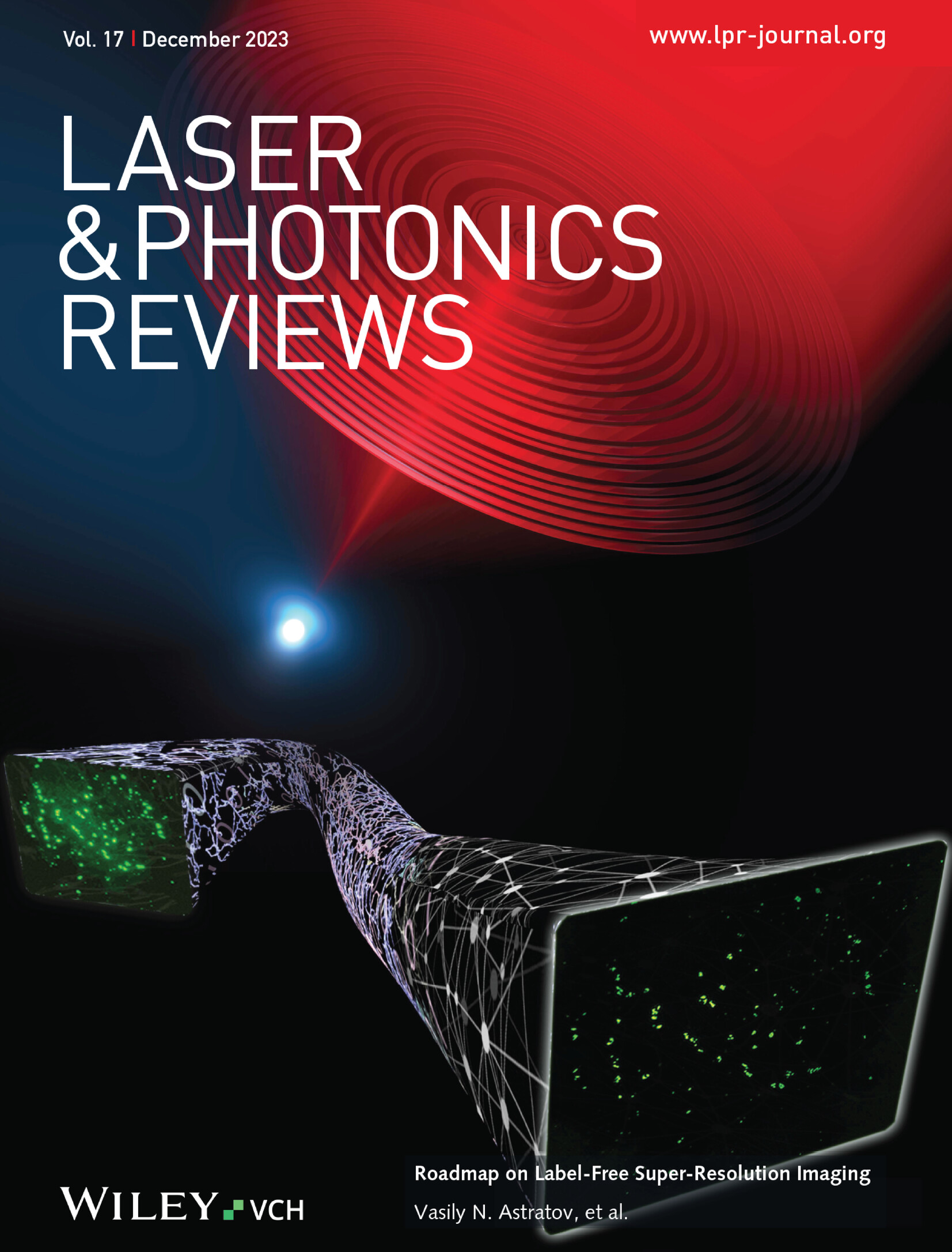Low‐Power and Fast‐Scan Reconstructive Spectrometer Chip with pm Resolution on Thin‐Film Lithium Niobate
IF 9.8
1区 物理与天体物理
Q1 OPTICS
引用次数: 0
Abstract
The demand for wearable devices, chemical sensing, and medical diagnostics has driven rapid development of miniaturized spectrometers. Reconstructive spectrometers can achieve spectral measurements with a high‐resolution and wide bandwidth by utilizing complex mapping of spectra in time or spatial domains. However, achieving reconstruction with a high bandwidth‐to‐resolution ratio still requires long calibration time and large power consumption. Here, an integrated single‐drive reconstructive spectrometer chip is proposed and demonstrated on the thin film lithium niobate platform using hybrid spatial and time speckles. By utilizing long and ultra‐low loss electro‐optic tunable spiral waveguides, 5pm high resolution and 95 nm wide bandwidth for spectral recovery around 1550 nm wavelength are achieved under a voltage scanning of ±50 V. A record‐low peak power of 5.1 µW and energy consumption of 0.252 µJ at a scan rate of 10 Hz is also achieved. Combined with neural network algorithms, the device can perform ultrafast spectral classification within 12.6 µs under driving voltage of only ±3 V, which has great potential in real‐time and low‐power spectral analyses.薄膜铌酸锂的低功耗、快速扫描重构光谱仪芯片
对可穿戴设备、化学传感和医疗诊断的需求推动了微型光谱仪的快速发展。重构光谱仪可以利用复杂的时域或空间域光谱映射,实现高分辨率和宽带宽的光谱测量。然而,实现高带宽分辨率比的重构仍需要较长的校准时间和较大的功耗。在此,我们在铌酸锂薄膜平台上提出并演示了一种使用混合空间和时间斑点的集成式单驱动重构光谱仪芯片。通过利用超长、超低损耗的电光可调螺旋波导,在 ±50 V 的电压扫描下,实现了 5pm 高分辨率和 95 nm 宽带宽,可用于 1550 nm 波长附近的光谱恢复。在 10 Hz 的扫描速率下,还实现了 5.1 µW 的创纪录低峰值功率和 0.252 µJ 的能耗。结合神经网络算法,该器件可在驱动电压仅为 ±3 V 的情况下,在 12.6 µs 内执行超快光谱分类,在实时和低功耗光谱分析方面具有巨大潜力。
本文章由计算机程序翻译,如有差异,请以英文原文为准。
求助全文
约1分钟内获得全文
求助全文
来源期刊
CiteScore
14.20
自引率
5.50%
发文量
314
审稿时长
2 months
期刊介绍:
Laser & Photonics Reviews is a reputable journal that publishes high-quality Reviews, original Research Articles, and Perspectives in the field of photonics and optics. It covers both theoretical and experimental aspects, including recent groundbreaking research, specific advancements, and innovative applications.
As evidence of its impact and recognition, Laser & Photonics Reviews boasts a remarkable 2022 Impact Factor of 11.0, according to the Journal Citation Reports from Clarivate Analytics (2023). Moreover, it holds impressive rankings in the InCites Journal Citation Reports: in 2021, it was ranked 6th out of 101 in the field of Optics, 15th out of 161 in Applied Physics, and 12th out of 69 in Condensed Matter Physics.
The journal uses the ISSN numbers 1863-8880 for print and 1863-8899 for online publications.

 求助内容:
求助内容: 应助结果提醒方式:
应助结果提醒方式:


